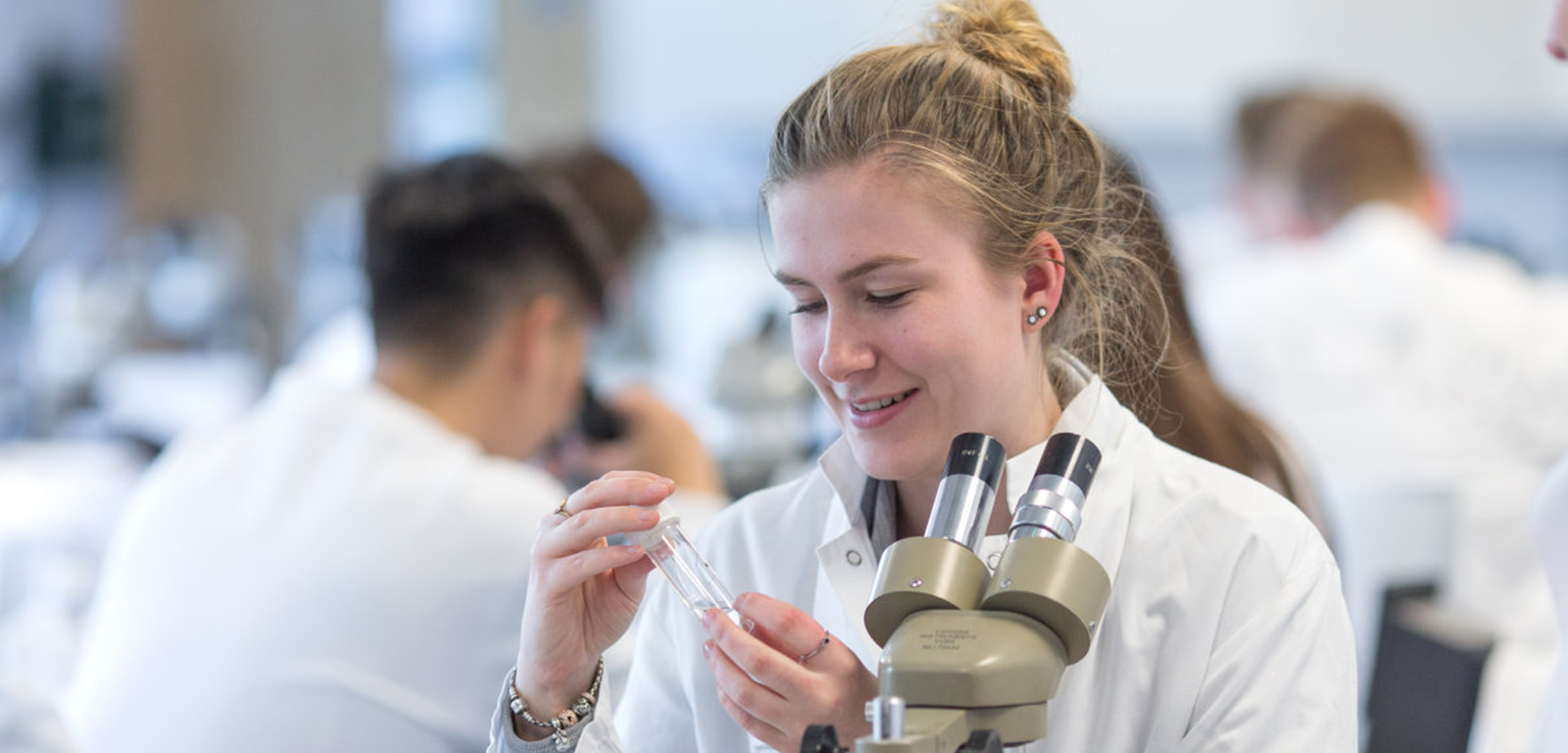

Biological Sciences at Imperial aims to understand the behaviour of living systems from the level of cells up to whole organisms and ecosystems.
The Department of Life Sciences offers a number of degrees in Biological Sciences, with some degrees enabling you to choose from a broad selection of modules, and others allowing you to specialise in a particular area.
This degree allows you to combine your training in biological sciences with study of the Spanish language. These classes, taught in Spanish by the Centre for Languages, Culture and Communication, focus on the use and presentation of written and oral scientific and technical material in Spanish.
You will also receive an introduction to the theory and practice of translation, alongside further studies in the history, politics, science and technology of Spanish-speaking countries.
In the first year you will cover modules in core areas of biology and key scientific skills alongside these classes. This gives you a solid grounding in the fundamental topics, and prepares you for advanced study.
In the second year you study applied biology and genetics, then begin to specialise through optional modules.
You spend your third year studying in a Spanish-speaking university, where you will attend lectures and conduct a research project.
In your final year you will complete a research project on a topic of your choice, and choose from an even wider selection of modules such as evolutionary biology, plant biotechnology and neuroscience.
Our teaching is enriched by the Department’s internationally leading research programme, so you’ll be learning at the very cutting edge of the subject. You will also benefit from access to our outstanding facilities, including for genomic and cell biology studies, tissue culture suites and the most modern microscopes.
Please note: this course is not suitable for native or near-native Spanish speakers.
Normally only students who are on track for at least a 2:1 by the end of their second year, will be eligible to spend their third year abroad.
More information:click here
Year 1
Core modules
Biological Chemistry and Microbiology
Biology of Organisms
Language modules
Spanish History and Politics
Spanish Language for Science (Level 4)
Cell Biology and Genetics
Ecology and Evolution
Year 2
Core modules
Applied Molecular Biology
Genetics
Tutored Dissertation
Language modules
Spanish Language for Science (Level 5)
Spanish Science and Technology
Optional modules
You choose one module from each group below.
Group 1
Bacterial Physiology
Group 2
Behavioural Ecology
Virology
Group 3
Ecology
Immunology
Parasitology
Cell and Developmental Biology
Resource Management
Year Abroad
You spend this year studying at a leading university in either Madrid or Valencia.
Partnerships with universities are subject to continuous review and individual partnerships may or may not be renewed.
There may be limitations placed upon your ability to live and study abroad. If applicable you will need to successfully apply for the relevant visa. This applies to all students, including Home students, in light of the vote for the United Kingdom to leave the European Union.
Year 4
Core modules
Science Communication
Laboratory-based research project or a literature-based dissertation
Spanish Scientific and Technical Translation with the use of Translation Technology
Optional modules
You will select one module from each of the below groups.
Group 1
Damage and Repair in Biological Systems
Macromolecules in Three Dimensions
Group 2
Advanced Topics in Immunity and Infection
Advanced Topics in Parasitology and Vector Biology
Biodiversity and Conservation Biology
Cancer
Evolutionary Biology
Integrative Systems Biology
Mechanisms of Gene Expression
Metabolic and Network Engineering
Symbiosis, Plant Immunity and Disease
Group 3
Biodiversity Genomics
Bioinformatics
Biotechnology Applications of Proteins
Epidemiology
Global Change Biology
Medical Glycobiology
Molecular Basis of Bacterial Infection
Synthetic Biology
Systems Neuroscience
Medical Microbiology
Neuroscience Research
Plant Biotechnology and Development
Population and Community Ecology
Stem Cells, Regeneration and Ageing
African Biology Field Course

Life sciences graduates enjoy excellent career opportunities. Most of our graduates study for a higher degree in life sciences and many follow careers in the field, particularly in the research and management areas of pharmaceuticals, biotechnology, biomedical science, food technology, agrisciences, and pest, disease and environmental management.
Similar opportunities exist for life scientists in government and independent laboratories involved in medical research, public health, forensic investigation, disease research, conservation, and pollution. Some of our graduates also go on to work in medical careers, become teachers, or even work in the media.
Recent graduates of the Department have become:
Genome Scientist, Illumina
PhD student, Sir Francis Crick Institute
Communications Manager, Orangutan Project, Borneo
Investment Analyst, JP Morgan
Clinical Data Manager, Institute of Cancer Research

Insurance-Single:£300/year